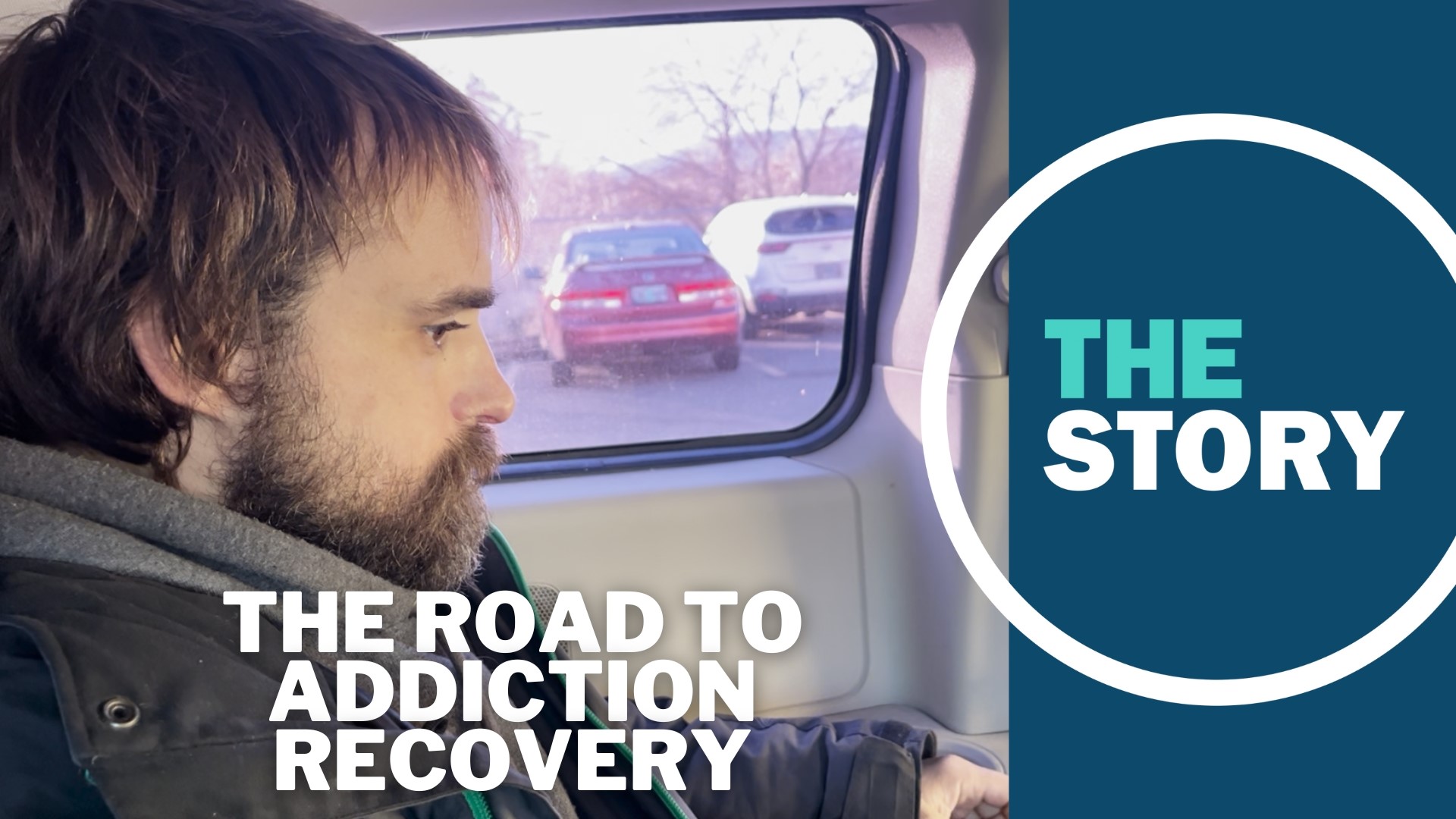THE DALLES, Ore. — It was a crisp, bright morning in The Dalles, and two homeless people stood on a street corner next to a shopping cart filled clothes, blankets and a sleeping dog. Outreach worker Martin Rivas walked up to the pair, asking if they needed any help.
Rivas introduced himself as an engagement specialist with Bridges to Change, a nonprofit that operates in a number of Oregon communities.
“I'm here to help, man. I'm here to provide services to help,” he said.
Helping people on the streets and connecting them to housing or detox services is his focus each day. He also helps them with other needs such as transportation, food stamps, IDs and phones.
“If you're interested in treatment man, I can definitely get you to a detox,” he said to a homeless man named Louis, who had expressed an interest in going to detox.
Recently Bridges to Change expanded its outreach work to help people like Louis, thanks in part to funding from Measure 110. That's the controversial law passed by voters back in 2020 which decriminalized user amounts of street drugs and sent tax money to programs that can provide drug treatment services, like Bridges to Change.
“This is just the tip of the iceberg of what we're trying to do in this state,” said Victor Veloz, the regional manager for Bridges to Change.
Veloz knows that many people argue Measure 110 has made the state’s drug epidemic worse — however, he believes there’s a greater problem.
“We need a faster process of getting people into treatment when they're ready to go,” he said.
“You have to get them at the right time. If he's feeling right now that he wants to go and he's ready for treatment then I’m right here, I’m right here,” explained Rivas, who knows firsthand how quickly one has to act when going into detox.
“I've been clean now for over five years, but I lived a life of an addict,” Rivas continued. His addiction led him to prison for three years. “When I came out of prison, I came straight into housing of Bridges to Change … I did the whole 360. I went all the way around and I’m just so proud of myself. It works, you know.”
He tries to pass that message on to others like Louis, who agreed to seek help.
“So, the plan is to go to the office. I am going to call Eastern Oregon Detox Center and then we're going to get an over-the-phone interview,” Rivas explained while driving.
“I’m just hoping for better things, you know,” Louis mumbled under his breath in the backseat.
On the drive back to Bridges to Change, Rivas explained that the closest detox center is two hours away. But that's not all — after a few phone calls to detox centers, Rivas learned that Louis only uses THC, which doesn't qualify him for a bed.
“In order for you to get help you need to be on fentanyl, heroin and all those tough drugs, you know, and it's not fair,” said Rivas. He talked about another homeless man with a similar story. He started using meth just to get a bed. “He said, 'You know what, if that's what it takes, I’m dirty.'”
Two hours and numerous phone calls later, Rivas finally connected with a councilor who once helped him. She was able to refer Louis to a housing program. Referrals are a crucial step in the process, one Rivas isn’t qualified to do on his own.
“She's going to make this a priority. She's going to be able to see us on Tuesday and give us an assessment,” said Rivas. If not for that connection, finding a place for Louis could have taken weeks, even months.
“I feel like we've hit rock bottom and there's nothing left to do — if we don't get out, we're going to die,” said Rachel, who was sitting on the sidewalk outside of the local food pantry. The KGW crew met her after Rivas dropped Louis off. Rachel said she feels like a prisoner to addiction and wants to detox, yet knows how difficult it is to find an available bed.
That same issue was highlighted in a state audit just released on Measure 110. It points out that the benefits of investing in treatment programs outweigh the cost of those programs, since it's proven people continue using drugs if they are not able to get a bed.
According to a 2022 state-funded study titled “Oregon Substance Use Disorder Services Inventory and Gap Analysis” more than half of the substance use, recovery and treatment organizations in the state said that their capacity did not meet the current demand.
“They don't really have anything here for help when it comes to drugs or alcohol,” said Rachel.
It was 3 o'clock in the afternoon and Rivas’ shift was almost over, so he gave Rachel a number to call. It's unclear if she ended up calling the number or got connected with help.
“The system is meant for you to fail,” Rivas said. Regardless, he keeps fighting to win. “I'm just prepared to help the next person so as soon as I’m done helping one person, I’m ready to go out there and help the next person just to let them know that there is a change, there's something better out there.”

